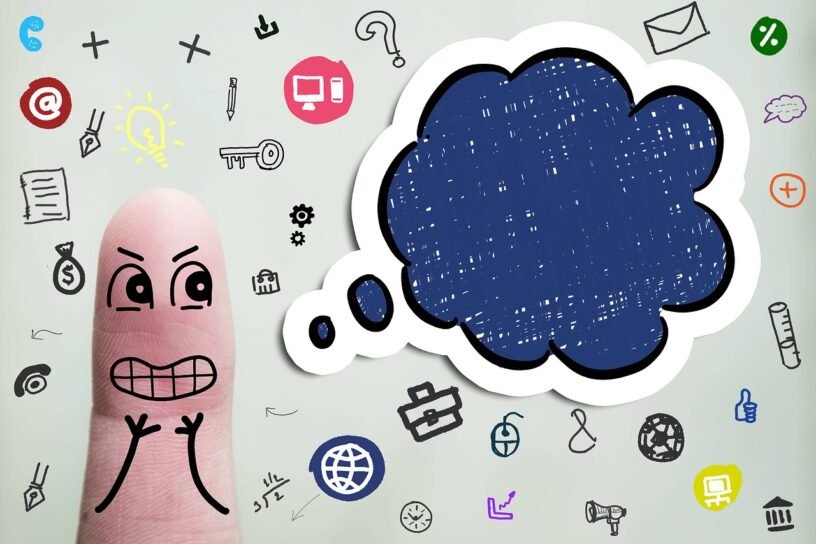Table of Contents
Introduction – Work-Life Balance
Alright, how about we discuss the crazy world of IT? It resembles an endless rollercoaster of inventiveness and deadlines. The fact remains, though, that engineers in this sector must continually balance their personal and professional lives, and it’s not easy. It feels like a tightrope to balance the demands of delivering projects on time, staying available when needed, and learning new skills, all while relying on technology to keep us connected around-the-clock. However, this guide aims to explore those issues in detail and provide some practical answers. Together, we must figure out how to strike a balance in this situation.
Work-Life Balance Challenges for Engineers:
Constant Connectivity:
- Challenges: Engineers must deal with the challenge of continuous connectivity, particularly in positions that need system monitoring or critical issue response. Being expected to be available all the time might cause burnout and interfere with personal time.
- Solutions:
- On-Call Rotation: Establish a methodical plan for switching up who answers the call. Navya, a DevOps engineer, and her colleagues came up with a rotation schedule that ensures each team member has set on-call times. Team members can take care of personal matters with this schedule without compromising the integrity of the system.
- Communication Protocols: Clearly define the channels of communication for emergencies that arise after hours. Establish clear guidelines for what constitutes an actual emergency so that engineers may distinguish between critical problems and non-urgent ones when working after hours.
Project Deadlines and Pressures:
- Challenges: The need to complete projects on time frequently causes engineers to work longer hours and experience higher levels of stress.
- Solutions:
- Agile Methodologies: Establish realistic project deadlines and use agile approaches. Iterative development is crucial, according to software engineer Shanaya. “Breaking down projects into manageable sprints allows us to maintain a sustainable pace, reducing the pressure associated with looming deadlines.”
- Transparent Communication: Encourage open and honest dialogue regarding project deadlines. Provide regular updates to stakeholders on the status of the project, any anticipated delays, and schedule modifications. This promotes comprehension and lessens excessive pressure.
Emergencies and On-Call Responsibilities:
- Challenges: Emergencies and unanticipated system problems can interfere with personal plans, resulting in stress and negatively affecting wellbeing.
- Solutions:
- Incident Response Plan: Put in place a strong incident response strategy. Systems engineer Shrishti and her group practice incident response on a regular basis through simulations, which helps them be ready and lessens the stress that comes with unplanned crises.
- Documentation: Ensure that thorough records of common problems and their fixes are kept. As a result, issues can be found and fixed more quickly in an emergency and less time is wasted on doing so.
Skill Upgradation Pressure:
- Challenges: The constant need for engineers to keep up with emerging technologies can necessitate personal time commitment for skill development.
- Solutions:
- Scheduled Learning Time: Set aside time specifically for education and skill development. Shanti, a data analyst, sets aside a few hours every week for skill-development activities and online courses. “Setting aside specific time for learning prevents it from becoming overwhelming and ensures a balanced approach.”
- Knowledge Sharing Sessions: Schedule team meetings for the purpose of exchanging knowledge. This lessens the workload for individual engineers and fosters a cooperative learning environment.

Tips for Engineers to Maintain a Healthy Work-Life Balance:
Establish Boundaries:
- Challenges: It can be difficult for engineers to establish boundaries, which results in continual work-related communication outside of regular business hours.
- Solutions:
- Communication Protocols: Establish and convey guidelines for communication after business hours. Anbu, a software architect, makes sure that everyone on his team understands the value of maintaining a healthy work-life balance.
- Automated Notifications: Colleagues should be notified by automated notifications when an engineer is formally out of the office or during assigned personal time.
Prioritize Tasks:
- Challenges: Prioritizing work can be difficult for engineers, which can leave them feeling overburdened all the time.
- Solutions:
- Prioritization Frameworks: Use a prioritizing system such as the Eisenhower Matrix. Chaitali, a business analyst, uses this matrix to rank tasks according to their significance and urgency.
- Regular Check-Ins: Team members should be regularly checked in with to reevaluate priorities in light of workloads and deadlines. This guarantees that tasks correspond with the team’s overall objectives.
Schedule Breaks:
- Challenges: Engineers frequently spend long stretches of time working nonstop on difficult problem-solving assignments, which wears them out mentally.
- Solutions:
- Scheduled Breaks: Schedule breaks into your everyday activities. Database administrator Harsha takes quick breaks to stretch and move around. “These breaks not only help Harsha recharge but also enhance his concentration when he return to work.”
- Mindfulness Practices: Incorporate mindfulness techniques to enhance mental health during breaks, such as brief meditation sessions or deep breathing exercises.
Utilize Technology Wisely:
- Challenges: The abundance of communication and collaboration tools can be overwhelming for engineers, making them feel like they are always “on.”
- Solutions:
- Consolidated Platforms: Integrate platforms for communication to improve information flow. In order to improve overall efficiency and minimize distractions, Varun, an IT administrator, limits the number of channels.
- Automated Responses: Automated responses should be implemented during focused or private times to acknowledge recipients while controlling response time expectations.
Designate “No Work” Time:
- Challenges: The inability of engineers to distinguish between work and personal time can result in continual work-related thoughts even when they are not working.
- Solutions:
- Calendar Blocking: To set aside particular timeslots for personal activities, use calendar blocking. Lalika, a software developer, makes sure she sets aside time each evening for leisure and side projects.
- Digital Detox: Take regular breaks from technology and communication related to work to fully recharge during downtime. This is known as digital detoxification.
Invest in Self-Care:
- Challenges: Engineers may put their physical and mental health last in favor of work.
- Solutions:
- Wellness Programs: Create initiatives for employee well-being within the company. Mahavir, an IT manager, promotes team well-being by holding mindfulness seminars and fitness competitions.
- Flexible Work Hours: Encourage engineers to work flexible hours so they can fit regular exercise or other self-care activities into their daily schedules.
Communicate Openly:
- Challenges: Engineers may be reluctant to discuss their workload or stress levels for fear that doing so will be interpreted negatively.
- Solutions:
- Regular Check-Ins: Plan regular one-on-one check-ins to provide a forum for engineers to discuss problems and their workload. Software team lead Arshia says these check-ins are meant to strengthen the team and build trust.
- Team Workshops: Plan workshops for your team that center on stress reduction and communication. Through these workshops, team members can freely discuss difficulties and exchange coping mechanisms in a safe environment.
Learn to Say No:
- Challenges: The inability of engineers to turn down new assignments or projects frequently results in an excessive workload.
- Solutions:
- Capacity Assessment: Maintain a realistic workload by routinely evaluating team and individual capacity. Systems engineer Baldev highlights the value of having reasonable expectations.
- Alternative Solutions: To maintain a cooperative and solution-focused approach, offer substitute solutions or assign duties when declining a task.
Conclusion
Work-Life Balance: it’s important to strike a balance between work and life in the IT industry, but it’s not always easy. You know, engineers need to be honest about the difficulties they encounter. However, take a look at this—we’ve seen some excellent instances of how tailored solutions can truly make an impact. Consider taking proactive measures, maintaining open lines of communication, and prioritizing your own health. Engineers are thriving instead of just surviving when they begin putting these strategies into practice. And hey, let’s give them the resources they need to keep killing it in life and at work as the IT landscape continues to change.
Happy Managing !




2 Pingbacks